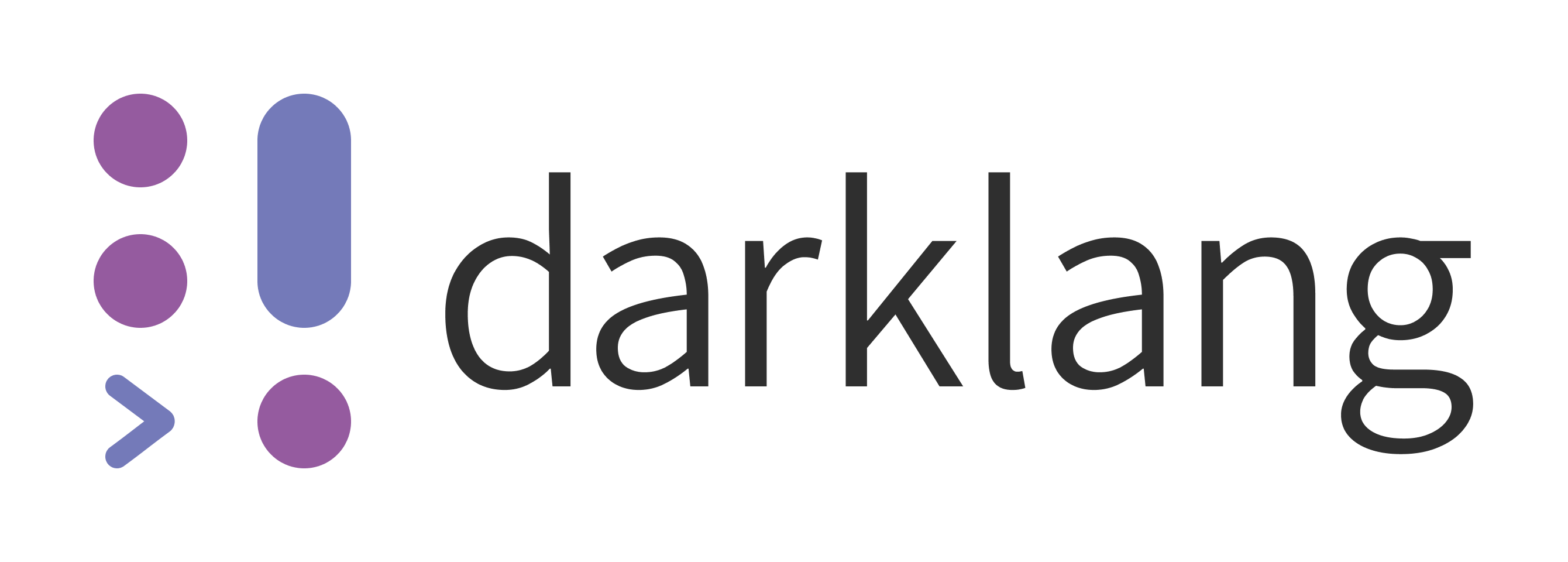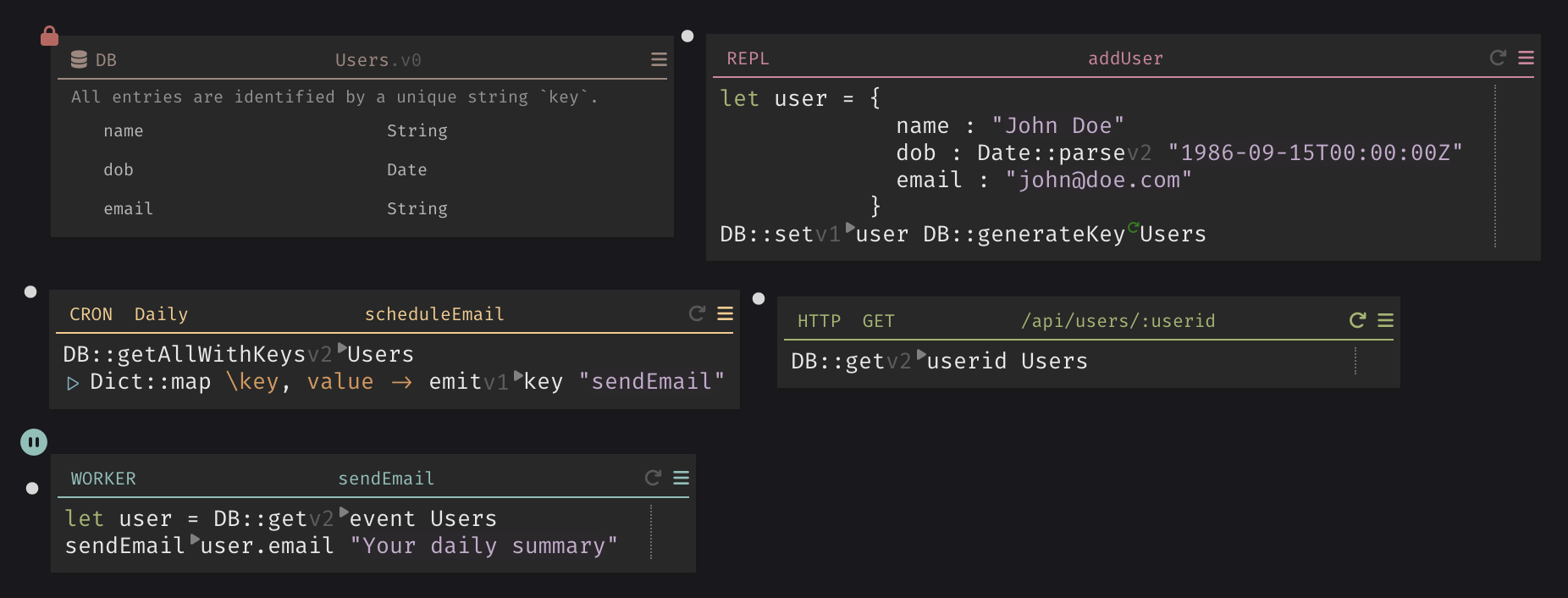
Just code
no cruft: no build systems, no null, no exception handling, no ORMs, no OOP, no inheritence hierarchies, no async/await, no compilation, no dev environments, no dependency hell, no packaging, no git, no github, no devops: no yaml, no config files, no docker, no containers, no kubernetes, no ci/cd pipelines, no terraform, no orchestrating, no infrastructure: no sql, no nosql, no connection poolers, no sharding, no indexes, no servers, no serverless, no networking, no load balancers, no 200 cloud services, no kafka, no memcached, no unix, no OSes
Send me project updates

